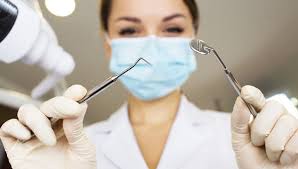The potential toxicity of amalgam fillings has become an increasing concern in recent times. People also prefer to have less conspicuous fillings making composite fillings have increased usage to repair dental decay. It is estimated that over 122 million composite tooth restorations are performed every year in the USA.
Synthetic resins are used for composite fillings, but they are soft compared to the natural tooth making them more vulnerable to failure than that of amalgam, composite resins will typically last 6-10 years whereas amalgam lasts for several decades. All fillings are susceptible to failure at some point in time due to cracking or shrinking, which creates gaps to harbor bacteria and debris increasing further risk of tooth decay.
Researchers are working to develop a more durable material for tooth repair without compromising the aesthetic value. Bioglass is a biocompatible material that is already being used in several biomedical applications, making its possible use in dentistry worthy of being investigated.
Glass has not been shown to produce an immune response. By virtue of its low weight and high strength it has been used most extensively in numerous biomedical applications, bone regeneration, bone tissue engineering, and wound healing. Bioglass is a form of crushed glass that is capable of bonding together to both hard or soft tissue showing antimicrobial activity.
High purity chemical such as silicon oxide, phosphorus oxide, and calcium oxide are smelted into ceramic crucibles to make bioactive glass, available in discs and powders with specific compositions and multiple sizes. To meet specific individual requirements the physical properties of glass can be made customized by way of modifying its composition and structure.
Bioglass material has been shown to be advantageous and successful in orthopedic applications making it worthy of being investigating for the repair of periodontal defects and dentistry applications. The high strength and antimicrobial activity of bioactive glass make it a potential candidate for dental fillings. Fillings using bioglass should improve the durability and hinder secondary tooth decay by suppressing bacterial colonization. Minerals in it may even serve to strengthen the damaged tooth surface.
Studies have demonstrated that such extrapolations to dentistry are true. Mineral formation in the dentin becomes enhanced when bioglass is added to fillings promoting the remineralization of dental caries, improving mechanical properties of tooth fillings in an aqueous environment. The addition of bioglass to restorations creates a surface which is less susceptible to bacterial penetration according to recent studies as well.
Results indicate that composite fillings containing bioactive glass may enhance the durability of fillings and reduce the occurrence of secondary tooth decay. Incorporation of bioglass to dental materials shows promise of less problematic solutions to dental procedures.




